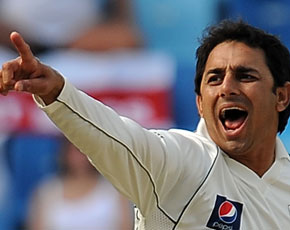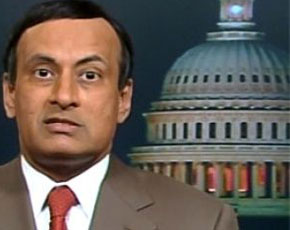
The
English batsmen's failure to read Ajmal’s length more than anything
else should be their biggest cause for concern. - Photo by AFP
As
Pakistan savour their majestic all-round performance to outwit England
within three days of the first Test match, the tourists, especially the
English media lick their wounds while teeing off on the luxurious golf
courses in Dubai.
Controversy has never been far from a
Pakistan-England encounter, but no one expected it to begin as early as
it did during the on-going series in the United Arab Emirates (UAE).
Pakistan, through Seed Ajmal’s artistry, had barely finished delivering
an early blow on the morning of the first day’s play in the opening
Test, that muted calls of foul-play and doubtful actions started ringing
in from London. This time, however, it wasn’t the English tabloids
doing the complaining but the highly-respected Sky headquarters –
chock-a-block with some distinguished cricketing luminaries – to start
the rot.
“The off-spinner has a conventional round-arm (action),
and it doesn’t seem to be a threat but the doosra is the delivery that
the batsmen are all struggling with. The authorities are now allowing
these mystery spinners, unorthodox off-spinners, to bend their elbow,”
complained a clearly irked Bob Willis.
As
the English downfall continued, Willis went on to accuse Ajmal of
wearing a long-sleeved shirt to conceal a kink. This latest ‘accusation’
from Willis completely disregarded the fact that play was being held in
the middle of winter, and that eight other players were dressed in a
similar manner. Matters weren’t helped either when Graeme Swann came on
to ball later in the day, wearing the same long sleeves.
With due
respect to the “critics” disapproving photographs of Ajmal’s action that
are doing the rounds on the web, a little perspective is in order.
After all, it is a well-known fact that Ajmal has been cleared by an
independent panel of specialists approved by the International Cricket
Council (ICC).
Dr Bruce Elliot – a professor of Bio-mechanics,
Motor Learning and Development at the University of Western Australia –
cleared Ajmal in 2009, when the Australian cricket team were struggling
to deconstruct his mystery at the same venue. Elliot
revealed that
“during a comprehensive analysis it was apparent that the amount of
elbow extension in Saeed Ajmal’s bowling action for all deliveries was
within the 15-degree level of tolerance permitted in the ICC
regulations.”
Dr Paul Hurrion, the ICC’s chief biomechanics analyst and consultant, recently
explained how
these tests were conducted to remove doubts on whether the “conniving”
spinner had in fact sneaked his way through the trials. “We use
synchronised footage of the player bowling in a match to check that they
are not just going through the motions or altering their style. They
have to replicate the speed of a delivery from a match, the deviation
and the revolutions of the ball. When being tested, the bowler is
topless and has reflective markers all over his bowling arm, so the
three-dimensional, high-speed cameras can film him from every angle.”
Had
the art of spin bowling been given the proper study and credit it
deserves, all the hoopla surrounding Ajmal’s action would have been
unnecessary. Those who have delved in the deeply enriched nature of spin
bowling will know how simplified it has been through the years. The
generalisation and viewing of the skill from a very convex lens has led
to these recent tirades against innovation.
Spinners, for ages,
have been classified into two broad categories: wrist and finger, with
leg-spinners being tagged as the former and off-spinners the latter.
However, nothing could be further from the truth, since the bowling
varieties of several international spinners are incomparable.
First
things first: the misconception of wrist and finger spin. There is no
form of conventional spin that isn’t aided by the wrist and the reason
why leg-spin is wrist spin while conventional off-spin is not, depends
on the timing of the wrist action. In normal off-spin the wrist plays an
initial part only in transferring the ball to the fingers, while the
opposite applies to leg spin. The only true finger-spinner in the game
is Sri Lanka’s Ajantha Mendis or India’s Ravichandran Ashwin, especially
when he delivers his much-hyped ‘Sudoku ball’.

Ajantha
Mendis (left) and Ravishandran Ashwin (right) - the only true ‘finger’
spinners in international cricket (Video grab: TenSports, Photos:
Reuters)
Most conventional off-spinners are forearm
spinners, who derive most of the spin in delivery action when they turn
their forearm from the palm-side facing downwards to it facing upwards
(a position medically termed ‘supination’). Some of the leading examples
of this type of conventional forearm spin are Nathan Lyon, Graeme
Swann, Nathan Huaritz, Pragyan Ojha and Daniel Vettori.
And then,
there is Muttiah Muralitharan – the greatest conjurer of them all. To
call him a finger spinner would be nothing short of travesty. Murali’s
entire array of deliveries was dependent on an insane amount of work to
be done by the shoulder joint, and he was more a shoulder spinner than
anything else.

Murali – a shoulder spinner, Swann – a forearm spinner
The
man in the limelight this past week, Ajmal, is another anomaly. He is
not a shoulder, finger, or forearm spinner. He has, instead, dug up the
buried art of wrist-spin, which is normally confined to leg-spinners and
given it a most exciting twist. Most of his spin is not dependent on
the fingers or shoulder, but actually on the wrist acting in a manner
opposite to how it would act for a conventional leggie.
So, Ajmal,
instead of using his wrist to pass on the ball to the fingers, (as
Swann, or any conventional ‘offie’ would do) uses his wrist as the major
body part imparting the spin. Getting the wrist in position for an
off-break takes that extra fraction of a second, which in turn means he
has the delayed, jerky action that is so hotly debated.

Ajmal’s wrist-spinning action requires time for the wrist to get into position leading to the ‘jerkier action.’ (Photo: AFP)
This
novel wrist-spinning style is also the reason why Ajmal has been able
to stock up his bowling arsenal with a ‘skiddy’ straighter-one, or what
he likes to term the
teesra.
In reality, the teesra is
not a new delivery as it has been part of a leg-spinners bag of tricks
for generations. Shane Warne liked to call it the ‘slider.’ However, as
Ajmal bowls it with the off-spinner’s action, it will take some time for
the batsman to adjust to this new variation. Indeed, the English
batsman should be focusing on picking the
doosra, instead of getting ahead of themselves and getting tangled up in the
teesra talk.
As
Jonathan Trott and Matt Prior exhibited in their short and stable
innings, it was patience and assured footwork that England’s other
batsmen were missing in their stints at the crease. Their failure to
read Ajmal’s length more than anything else should be their biggest
cause for concern. Of course, it would serve the number one Test side
better if the English media and television pundits were focussed on
offering some positive criticism instead of resorting to their age-old
tactics of griping and digging up a scandal.
This is not the first
time that Ajmal is bowling to the English batsmen. He was part of the
Pakistan squad in the 2010 tour, and has bowled to them quite frequently
in English county circuit as well. The only difference, of course,
being that this time the off-spinner is the major threat instead of a
mere clean-up act behind Mohammad Asif and Mohammad Amir. For Pakistan’s
sake, it would be better that Ajmal decides to take the lead from the
‘Dark Arts’ tour in the summer of 1992, when the two Ws (Wasim Akram and
Waqar Younis) vented their anger via a barrage of banana
reverse-swingers aimed at the clueless English batsmen.
















 Pakistan’s off-spinner Saeed Ajmal has come under criticism by the English media, specifically Bob Willis, who has
Pakistan’s off-spinner Saeed Ajmal has come under criticism by the English media, specifically Bob Willis, who has 





 Having remained silent on the memogate scandal for the last few months, the United States finally
Having remained silent on the memogate scandal for the last few months, the United States finally 










